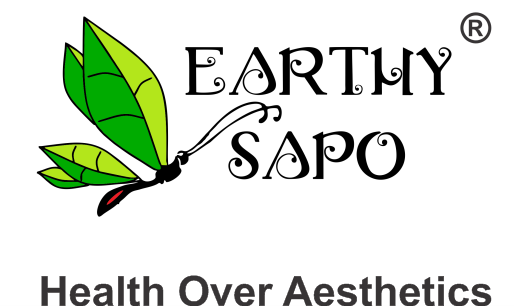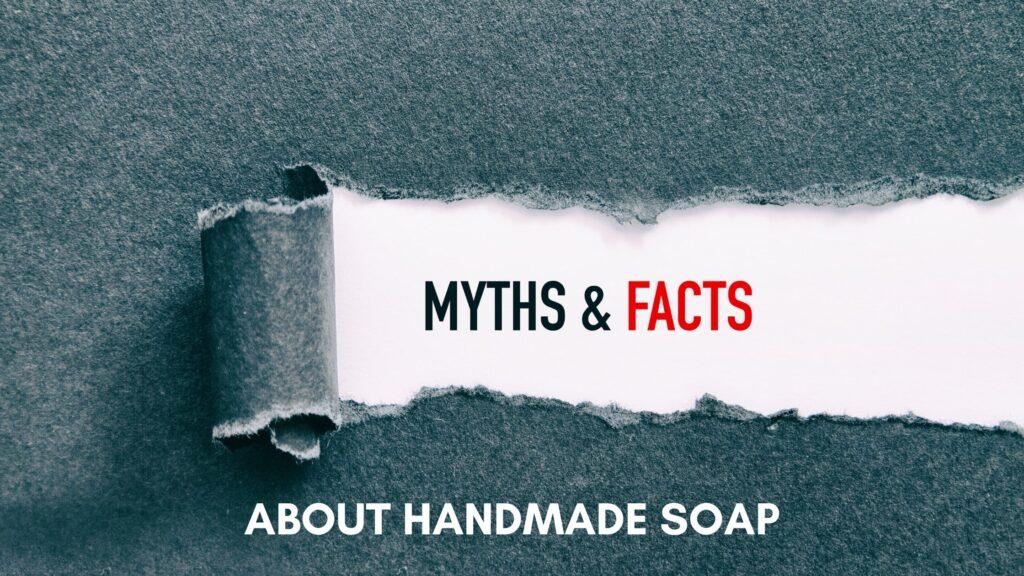Basics, Soap Making
Myths About Handmade Soap
We use soap every day and cleaning is the initial step with regards to dealing with your personal care. When you clean your body or skin properly then the rest follows. We all know why handmade natural soaps are superior to commercial soaps which are detergents in camouflage. Yet there are few myths prevailing about choosing handmade soaps over commercial soaps or cleansers.
So let’s do a fact check.
Handmade Soaps Contain Lye (sodium hydroxide) Which Is a chemical & is Harsh
A chemical reaction between fatty acids (oils) and an alkali (lye aka sodium hydroxide or caustic soda) makes soap. Basically, No lye means no soap. Now, you will think that how is a handmade soap considered natural when it contains a chemical sodium hydroxide? And, lye being harsh, why would I use lye for skincare? Let’s explain this better.
Just like the the water we drink and use on our skin is also H2O, sugar we use every day is Sucrose (C12H22O11) and Salt is Sodium Chloride( NaCl); lye is sodium hydroxide (NaOH). In earlier days lye was derived from wood ashes. The wood ash were leached to make a lye type solution which in turn was used in soap making by combining it with oils or fats available. However, now in modern times, we don’t burn down trees/wood to obtain wood ash and in turn lye, but we manufacture it in factories. The most relatable example I love giving is lime juice and citric acid. Citric acid is manufactured in factories these days, but we don’t call it chemical, do we? Now, I hope we are clear that using lye does not make a handmade soap a chemical based product.
Lye is strong and harsh, meaning it can burn your skin if touched directly. So lets come to your next question as to why would you use such a harsh substance on your skin. Lye is used in soap making to convert fats or oils into soap. It does not exist in the final product. The lye with oil is transformed into soap and glycerin. If lye existed in the final product, the mere application of the soap would burn your skin! So, by using handmade soaps, you are not using lye on your skin!
Anti-bacterial soaps are more effective at killing germs than handmade soaps
Antibacterial soaps (sometimes called antimicrobial or antiseptic soaps) contain certain chemicals not found in plain soaps, that are added with the intent of reducing or preventing bacterial infection. So, doesn’t this make you feel that these soaps will keep you and your family safer by lowering your risk of getting sick, spreading germs or being infected? Fact check time!
Did you know, that U.S. Food and Drug Administration (FDA) has banned over the counter (OTC) consumer antiseptic wash products (including liquid, foam, gel hand soaps, bar soaps, and body washes) containing the majority of the antibacterial active ingredients—including triclosan and triclocarban? Why? Because, till date there isn’t enough science or evidence to show that over-the-counter (OTC) antibacterial soaps are better at preventing illness than washing with plain soap and water. In addition, manufacturers haven’t been able to prove that these specific ingredients are safe for daily use over a long period of time. Infact, research suggests that prolonged use of triclosan may adversely impact your health by impacting your hormone levels and bacterial resistance.
So, we rest our case here –natural handmade soaps are not just as effective at preventing illness as these anti-bacterial soaps, but are safe too!
Soaps Can’t Be Used On Face
This is something, that I seriously don’t understand. Natural soap is meant to clean our skin without damaging our skin or our health. Agreed, that our facial skin is more sensitive than our body skin, but how does that imply that soaps should be used on body only and not face? Or how does this make face washes safer that soaps for the face? On the contrary, handmade soaps are completely safe to use on your face because it doesn’t contain nasties, while face washes contain plenty of them. The soap we make at Earthy Sapo is totally free from detergents, SLS, alcohol, parabens, sorbates, silicones, sulphates and preservatives; making it kinder to the skin than other facewash bars or liquids. All you need to do is, find a soap which is suitable for your face skin type. What needs to be avoided is the commercial soaps/washes both on your face and body!
Natural Soaps Doesn’t Lather Well
All the natural soaps are made of fats/oils which have a different acid profile for soap making. While the lauric acid in fats used produces lather, oleic acid in the fats used provides conditioning properties to the soap. Coconut oil soap has the highest lauric acid, thus it gives fluffy bubbles. This also means that it is high in cleansing and can be drying if used in high proportions. Olive oil is extremely low on lauric acid but high in oleic acid. This means that while the soap made from olive oil is extremely gentle and moisturizing, it creates very low foam. So basically, the fats or oils used determine the lather property in natural soaps. Handmade soaps have a fine balance of oils to create the right formula. Every handmade bath soap has a different lather formation and cleaning capacity.
Liquid Soaps Are more hygienic Than Soap Bars
Most people cringe on the thought of using soap bars citing hygiene factors. According to them, a soap (especially hand wash soap at the basin), passes through several hands, most of them unwashed and dirty, which makes it breeding ground for germs and thus unsafe and unhygienic. But have you ever wondered, how can a product meant for cleaning not be sanitary? Soaps don’t develop mold or germs cant survive on soaps for long. In fact, in liquid soaps, germs could collect on the pump rather than on the liquid soap. One can rinse the soap bar with water before using it, but how many of us rinse the pump before use? What is important is that those coming in contact with the soap bar or pump, wash their hands thoroughly. Liquid soaps can be convenient in some cases but are certainly not more hygienic than soap bars.

